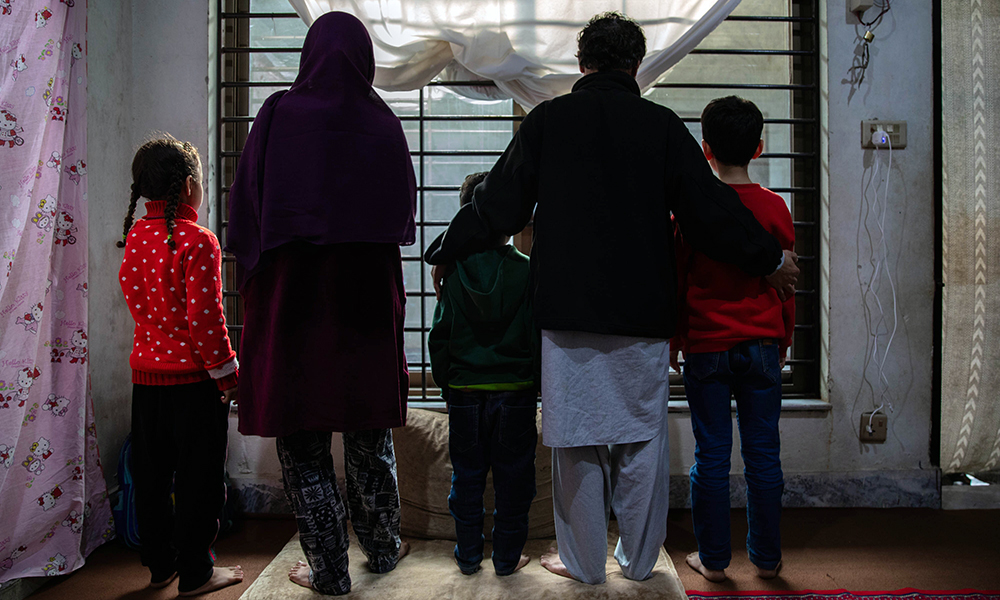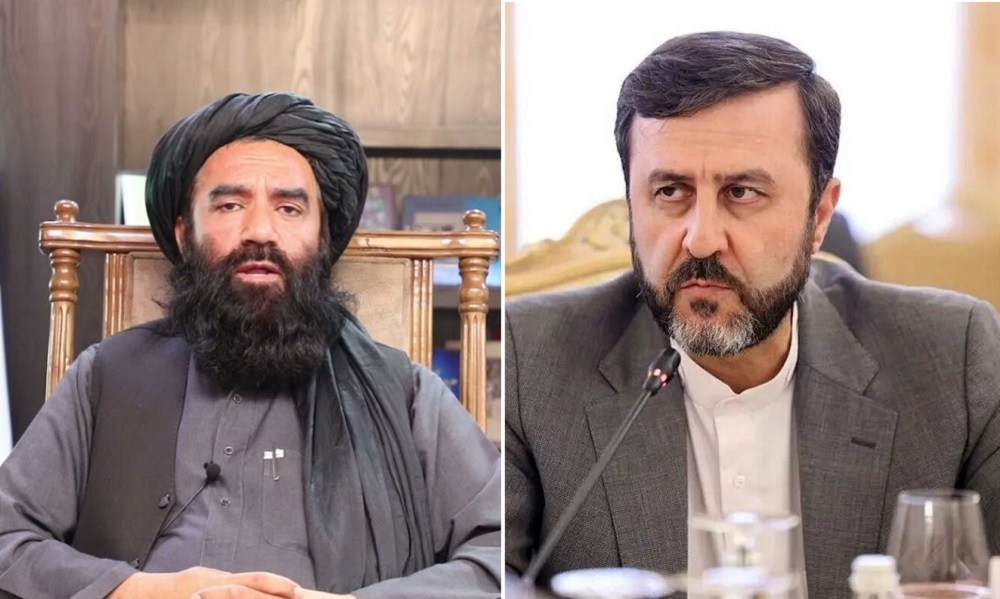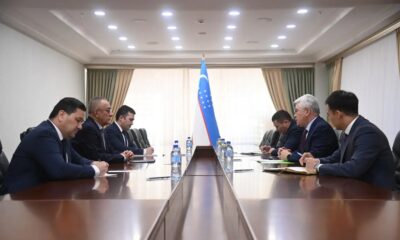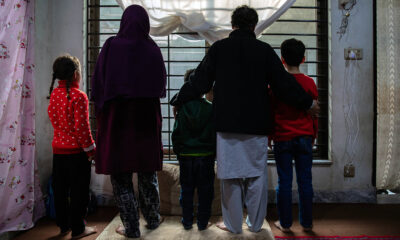Latest News
Afghanistan faces severe medicine shortage amid Forex restrictions

Afghanistan is now faced with medicine shortage due to disrupted border crossings and limited operation of banks.
Almost all medicine in Afghanistan is imported from neighboring countries, such as Pakistan, India, Bangladesh, Iran and Turkey.
However, the border crossings between Afghanistan and its neighbors were disrupted in the lead-up to the Islamic Emirate of Afghanistan’s (IEA) takeover, and normal operations are yet to resume.
Worse still, wholesalers have been unable to complete transactions due to the limited operation of banks.
“Yes, since the takeover, banks are closed [for international transactions]. As the banks are closed, we can’t transfer payments to suppliers. If we don’t transfer money to the suppliers legally, they will not be able to deliver us the medicine and prices will definitely rise. When demand is high, and supply is low, the prices naturally go up. We are facing a shortage in supply of essential medicine,” said Rohullah Alokozay, President of GPS Pharma, Reuters reported.
Officials said the number of visitors at government hospitals has increased since the change of regime. The good news is that international donors have increased their focus towards government hospitals.
“In fact, we have even more visiting patients. Fortunately, we got more attention from UNICEF and the WHO, especially, towards our hospital which is a children’s hospital. They didn’t have enough focus in the last few years, but in the last month they increased our medical supply,” said Noor ul Haq Yousufzai, president of Indira Gandhi Institute for Children’s Health.
In fact, the government hospitals didn’t have enough medical facilities in the past three to four years due to lengthy procurement processes and the problem of corruption.
Government hospitals were not able to provide medicines to patients despite the continued funding in the previous regime.
“On one hand, prices have increased, while on the other hand, the people have become poorer. This has affected the doctors, patients and the society. Even in the former regime, patients used to buy their medicine at the market. We used to prescribe the medicine. Patients were not provided even with a single pill from the hospital,” said Dr. M. Fayaz Safi, Head of Medical Doctors’ Association in Afghanistan.
Many of the problems in the health sector have been left over from the previous regime. Wahid Majrooh, former acting minister of public health in the previous government said the former Afghan authorities had tried to solve the issues in coordination with stakeholders, but efforts were unsuccessful.
“And it led us to having few or no supplies, and most of our health facilities including essential medicine, fuel, oxygen, staff salary. We have been trying to work with different stakeholders to see if we can fulfil the urgent needs, but we haven’t been able to do it successfully,” said Majrooh.
Latest News
Pakistan to repatriate nearly 20,000 Afghans awaiting US resettlement
Authorities will also share verified data of the affected individuals with relevant departments to support implementation.

Pakistan will repatriate nearly 20,000 Afghan nationals currently awaiting resettlement in the United States, The Nation reported, citing official sources.
The move affects 19,973 Afghans living across Pakistan.
A federal directive will instruct provincial chief secretaries and police chiefs in Punjab, Sindh, Khyber Pakhtunkhwa, Balochistan, Azad Kashmir, Gilgit-Baltistan, and the Islamabad Capital Territory to begin the repatriation process immediately.
Authorities will also share verified data of the affected individuals with relevant departments to support implementation.
Following the Islamic Emirate’s return to power in 2021, more than 100,000 Afghans fled to Pakistan, many of whom had worked with the US and UK governments, international organizations, or aid agencies.
Thousands have remained stranded in Pakistan for over four years while awaiting US resettlement clearance.
Prospects for relocation have dimmed amid a suspension of case processing by the US administration, according to The Nation.
Under Pakistan’s Illegal Foreigners Repatriation Plan (IFRP), all Afghan nationals still awaiting US relocation will now be returned to Afghanistan.
Latest News
Terrorist activities observed along Afghanistan borders, says Lavrov

Terrorist activities continue to be observed along Afghanistan borders and along the India–Pakistan–Afghanistan corridor, Russian Foreign Minister Sergei Lavrov said in an interview published on Monday.
Speaking to Russia-based media outlet TV BRICS, Lavrov pointed to ongoing concerns in the Middle East, including its Asian regions.
He highlighted the importance of collaboration with India at the United Nations to advance a global counter-terrorism convention.
Lavrov stated that while the draft convention has already been prepared, consensus on its adoption has not yet been reached.
Russia has repeatedly expressed concern about militant threats from Afghanistan. The Islamic Emirate, however, has dismissed the concerns saying that it will not allow Afghanistan’s soil to be used against any country.
Latest News
Afghan border minister holds phone talks with Iran’s deputy foreign minister

Noorullah Noori, Afghanistan’s Minister of Borders and Tribal Affairs, held a phone conversation with Kazem Gharibabadi, Iran’s Deputy Foreign Minister for Legal and International Affairs, to discuss bilateral border cooperation.
According to the Iranian news agency IRNA, both sides reaffirmed their commitment to strengthening border collaboration, with a particular focus on the ongoing renovation and updating of border markers. They also agreed to accelerate joint technical and legal meetings to enhance coordination.
As part of the agreement, the next meeting of senior border officials from Afghanistan and Iran is scheduled to take place in Iran in 1405 (2026–2027).
-

 Latest News2 days ago
Latest News2 days agoAfghanistan to grant one- to ten-year residency to foreign investors
-

 Latest News4 days ago
Latest News4 days agoTerrorist threat in Afghanistan must be taken seriously, China tells UNSC
-

 Sport3 days ago
Sport3 days agoIndonesia shock Japan to reach historic AFC Futsal Asian Cup final
-

 Sport4 days ago
Sport4 days agoMilano Cortina 2026 Winter Olympics: What You Need to Know
-

 Sport2 days ago
Sport2 days agoIran clinch AFC Futsal Asian Cup 2026 in penalty shootout thriller
-

 Latest News4 days ago
Latest News4 days agoUS Justice Department to seek death penalty for Afghan suspect in National Guard shooting
-

 Latest News4 days ago
Latest News4 days agoUzbekistan, Kazakhstan discuss cooperation on Afghanistan
-

 Latest News2 days ago
Latest News2 days agoAfghanistan says Pakistan is shifting blame for its own security failures
























